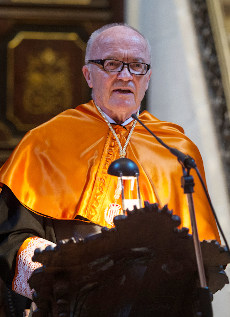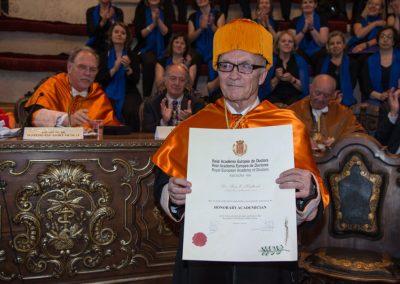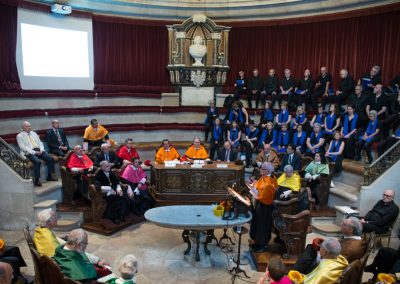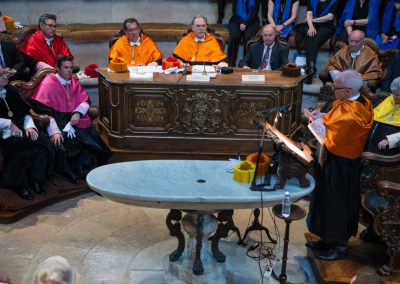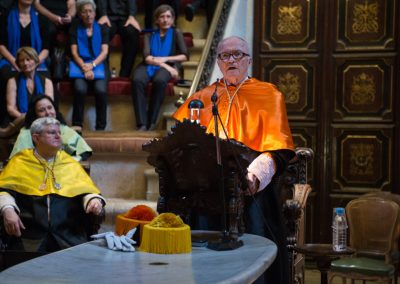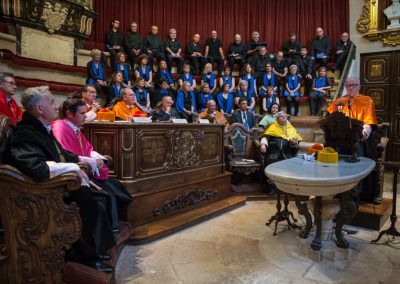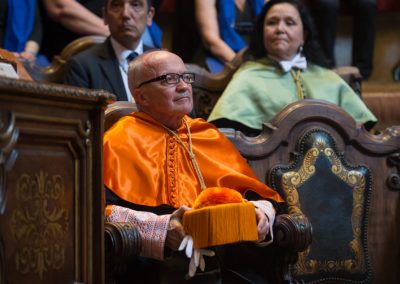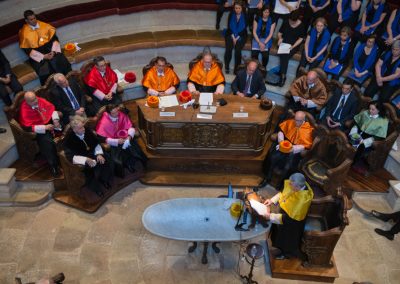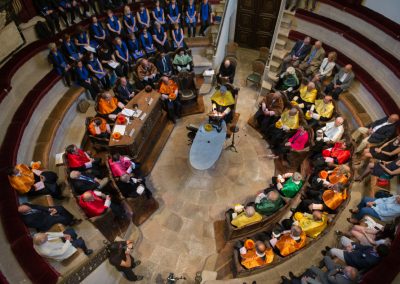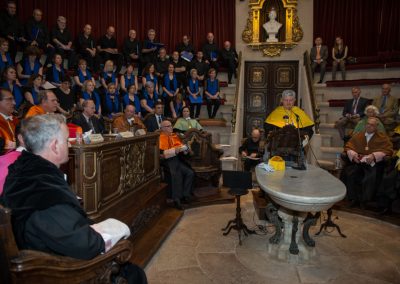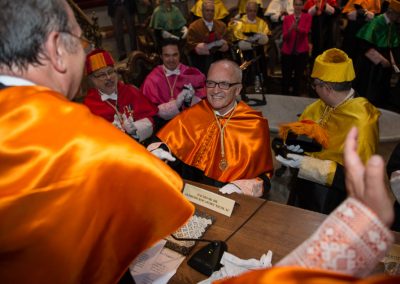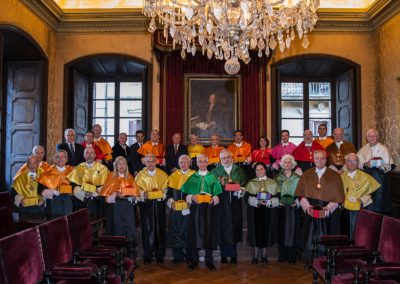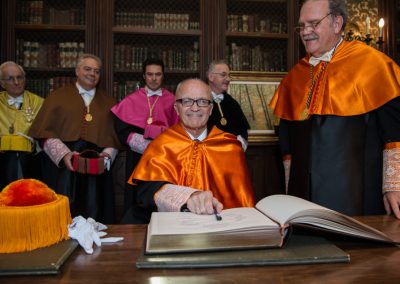Honorary Academician
Social Sciences: Doctor of Economics
Date of admission: June 12, 2017
Reply speech: Hon. Dr. José Ramón Calvo Fernández, Doctor of Medicine and Surgery
Nobel Prize in Economics 2004: He was awarded the Nobel Prize for his contributions to dynamic macroeconomics: the time consistency of economic policy and the driving forces behind business cycles.
Dr. FINN ERLING KYDLAND
- Born in Ålgård, Norway, 1943.
Academic Degrees
- Bachelor’s degree in Economics, Norwegian School of Economics (NHH), 1968.
- PhD in Economics, Carnegie Mellon University, 1973.
Academic Activity
- Professor of Economics at the University of California, Santa Barbara (since 2004).
- Associate and later Full Professor at the Carnegie Mellon University, Tepper School of Business (1978–2004).
- Adjunct Professor at the Norwegian School of Economics (NHH).
- Honorary Professor at the Universidad Torcuato Di Tella, Buenos Aires.
- Research Consultant for the Federal Reserve Banks of Dallas, Minneapolis, and Cleveland.
Awards and Distinctions
- Nobel Prize in Economics (2004), jointly with Edward C. Prescott, for their contributions on the time consistency of economic policy and the driving forces behind business cycles.
Scientific and Professional Work
- Research in dynamic macroeconomics, business cycles, fiscal and monetary policy, and labor economics.
- Doctoral thesis on decentralized macroeconomic planning.
Other Interests
- Enthusiast of blues music and a supporter of Boca Juniors.
- Athletics enthusiast, having completed four marathons.
- Passionate about motorcycles and long-distance riding.
Summary video
Complete video

